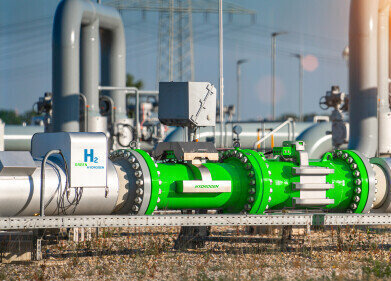Biofuel industry news
Fiscal Metering vs Custody Transfer - What's the Difference?
Jan 20 2022
While the terms fiscal metering and custody transfer are often used interchangeably, it’s important to differentiate between the two. In some scenarios they can be swapped without but for oil and gas experts, it’s best to understand the difference.
Below, we dive into the fiscal metering vs custody transfer debate and take a closer look at each term and what it means.
Fiscal metering
Fiscal metering is a general term used to describe the process of “measuring for money”. The term includes allocation, which US-based manufacturing company Emerson defines as “the numerical distribution of products between parties according to their equity share.” Fiscal metering also encompasses custody transfer flow measurement, i.e. the techniques used to calculate how much of a resource is changing hands.
Custody transfer
Custody transfer describes the change of ownership that takes place when resources are bought and sold. The process is contract driven, with both the buyer and seller required to meet predetermined obligations. Fiscal metering techniques are used to regulate the custody transfer process and ensure transactions are as accurate and transparent as possible.
Custody transfer processes are often regulated by national and international codes designed to streamline transactions. For example, when North Sea gas arrives at terminals off Aberdeen it’s processed by the producers such as Chrysaor before being sold to shipping and transport companies. These companies then sell the resource to commercial suppliers, usually the ‘Big Six’ as they’re known in the UK.
Both buyers and sellers rely on accurate custody transfer processes to determine the volume of gas changing hands during the transaction. Contracts between parties are usually underpinned by industry frameworks such as the Uniform Network Code (UNC).
Factoring in uncertainty
While steps are taken to maximise accuracy and precision, all metering systems are subject to some degree of uncertainty. This uncertainty is usually factored into the contract and shouldn’t cause issues, so long as both parties have agreed to the possible discrepancy.
The “exacting science” of custody transfer
Emerson describes custody transfer as an “exacting science that requires expertise in a number of different areas”. Given the huge amount of time, resources and technology channelled into custody transfer processes, this description is spot-on.
While fiscal metering and custody transfer can be used interchangeably and do fall into the same category, there is a difference. Find out more about fiscal metering, including the state-of-the-art technologies being used to improve accuracy and precision, in ‘Custody Transfer in Oil and Gas: Your Questions Answered’
Digital Edition
PIN 26.1 Feb/Mar 2025
March 2025
Analytical Instrumentation - Elemental Analysis for Quality and Process Control at Refineries, for Lubricants and Wear Metals in Engine Oils - Synthetic Lubricants: New Developments - Scaling...
View all digital editions
Events
Apr 08 2025 Birmingham, UK
Apr 08 2025 Kielce, Poland
Apr 08 2025 Ravenna, Italy
Apr 08 2025 Southampton, UK
Apr 08 2025 London, UK



















